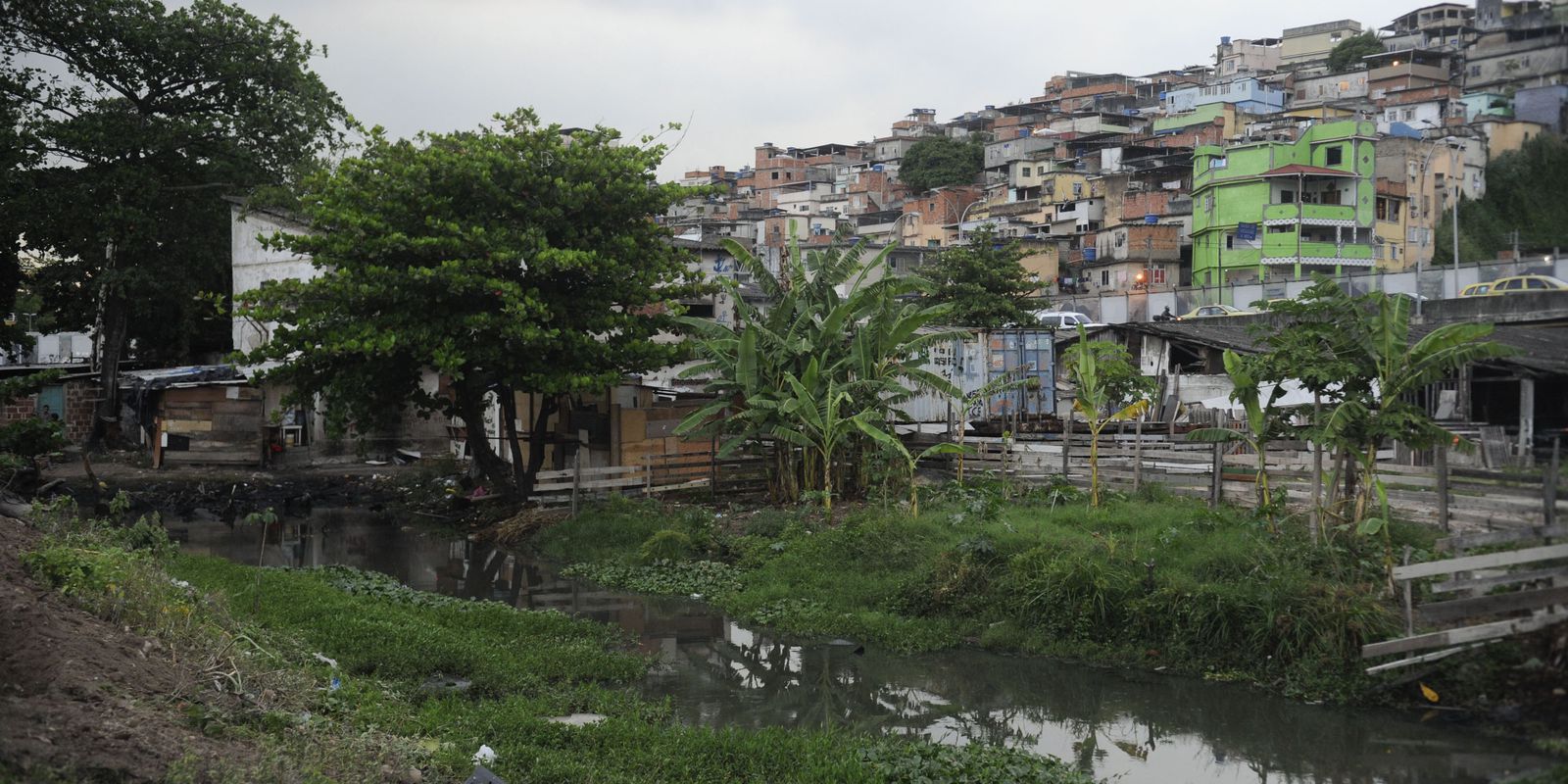The recent visit of the Minister of Justice and Public Security, Flávio Dino, to Complexo da Maré, in the north zone of Rio de Janeiro, reignited a controversial conflict of narratives about Brazilian favelas. In the political arena, opponents of the federal government accuse the minister of colluding with the criminals who work in the favela.
The minister, on the other hand, considers the statement “outlandish”, maintaining that it is the result of prejudice against the residents of that community. According to Dinothe authorities need to visit these territories.
Historically marginalized territories and not prioritized by the government, the country’s communities – and especially those in Rio de Janeiro – coexist with the illegal armed control of criminal factions, whether those linked to drug trafficking or the militias that extort money from residents in exchange supposed security.
After all, do authorities who visit favelas collude with the criminal gangs that control these territories? Do government representatives need authorization from armed groups to enter communities?
The accusation of connivance with criminals had already been made to the then presidential candidate Luiz Inácio Lula da Silva, when he visited, during the election campaign, Complexo do Alemão, which is relatively close to Complexo da Maré, in the north zone.
Book author Favelas of Rio de Janeiro: History and Law and researcher at the Pontifical Catholic University of Rio (PUC-Rio), Rafael Soares Gonçalves says that there is prejudice and lack of knowledge behind the narrative that authorities cannot visit favelas without an agreement with criminals.
“This debate, which I find ridiculous, reveals a number of issues. First, how society sees these spaces in the favelas, as if they were outside the city, society.”
According to Soares, there is a historical view of society that favelas are a place of risk. Initially, as a health risk, later as an environmental risk and, more recently, from the 1980s onwards, as a public safety risk.
“Obviously there is something of reality [nessa visão]. You’ll go up to a favela and you’ll probably find people with guns. I don’t want to fall into a kind of romanticism. There is militia, there is trafficking. And these ‘powers’ often, to a large extent, impact people’s daily lives”, explains Gonçalves. “But this is a reality of many, and we have a certain tendency to simplify things, not least because these borders in Rio de Janeiro are very strong. One [pessoa de] middle class or upper class many times they never set foot in a favela, they don’t know it.”
Director of the non-governmental organization (NGO) Observatório das Favelas, journalist Priscila Rodrigues also considers the narrative of criticism of Flávio Dino’s visit, as well as the criticism of Lula’s campaign in Complexo do Alemão in the 2022 election, as a reflection of prejudice, of ignorance and also attempts to isolate favelas from the rest of the city.
“There is an organization of how things work inside favelas and peripheries, which the rest of the city doesn’t know much about because of this discourse of separating, hiding, of always talking about the favela and the periphery based on violence. A narrative was created about these territories that is an unreal narrative, invented by those outside the territory.”
Priscila recalls that criminal factions are not the only non-state actors that wield power within the favelas. According to the journalist, there are several other actors who have the legitimacy to act in these places, independently of criminal groups, such as neighborhood associations and civil society organizations.
“In Maré, there are a large number of civil society organizations acting in these territories with legitimacy, because this comes from the popular struggle. Residents’ associations, civil society organizations and other leaders have power and legitimacy in these territories, because they are part of this community”, points out Priscila Rodrigues. “Maré is a territory with a lot of popular struggle historically.”
Rafael Gonçalves points out that the favela is a place where the State is present in services such as school and education, so it is not absurd to imagine that a public servant could enter one of these areas.
“The feeling given in this speech [de críticas à visita do ministro] is that the presence of the State is given only by the police and only by a policy of coercion. The fact that the State is present, paving the way, with a school, assistance, culture fully demonstrates that a favela is a city”, he says.
Oswaldo Cruz Foundation (Fiocruz) researcher Sônia Fleury is the project coordinator Dictionary of Favelas Marielle Franco, an online platform that seeks to gather entries and information about Brazilian favelas. Sônia points out that Fiocruz’s historic performance within Complexo da Maré, with the implementation of various community projects, proves that it is not necessary to dialogue with criminal factions for the State to act within favelas.
“Fiocruz does not have [nenhuma conivência com facções criminosas], you don’t even need to enter the favela. It is necessary to have professional relationships with numerous leaders who are there, with whom you establish agreements to provide services. So, Fiocruz has relationships with people with whom it is necessary to have relationships to develop projects, but not to be able to ask for authorization”, says the researcher.
Sônia Fleury cites the Observatório da Maré and the Center for Studies and Solidarity Associations of Maré (Ceasm) as examples of actors with a leadership role in the community.
The visit
In the episode involving minister Flávio Dino, who claims to have been accompanied by a police escort, the visit to the community took place on March 13 and involved participation in an event promoted by the association Redes da Maré, a community organization with over 20 years of experience. action in the slums.
The coordinator of Law and Public Safety at Redes da Maré, Liliane Santos, a social worker born and raised in Baixa do Sapateiro, one of the 16 communities in the complex, says that the invitation extended to Flávio Dino came from the idea of the international organization Open Society, which is a partner of Redes.
“For Open Society, it was very important to bring in an authority that could be present in a favela. It was also very important for us to bring. We believe that the transformation of reality like Maré is only possible with a dialogue between the public authorities, the justice system and popular participation”, says Liliane.
The event that Dino participated in was, according to Liliane Santos, the launch of the annual bulletin on public safety in Maré and had the participation of violence researchers and social organizations that work in the favelas of Greater Rio.
“It was a meeting of organizations, with a view to working with the minister on popular participation in public policy formulation processes at the national level. The minister was super open. We delivered a document with recommendations and proposals on the role of the Ministry of Justice in this government and we made ourselves available to contribute in whatever was necessary.”
According to Liliane Santos, during the visit, Flávio Dino invited her to the relaunch of the National Security with Citizenship Program, called Pronasci II, two days later in Brasília.
“I was there to discuss this theme, in a broader way, with the presence of President Lula. The visit [de autoridades] generates consequences for social participation, which are fundamental for the elaboration of a more comprehensive public policy with regard to public security. For Redes da Maré, it is only possible to consolidate policies by listening to people who use this service and with popular participation”.
According to the NGO’s coordinator, Redes da Maré began operating in the community in the early 2000s, after local residents began to enter universities. Hence the idea of creating a social pre-university entrance exam to help other young people from Maré to enter higher education.
Over time, the organization also began to act in axes such as culture, urban and environmental rights, health and public safety.
In the last axis, the organization operates by producing studies, monitoring police operations to check violations of rights, seeking alternatives to reduce damage in armed confrontations, helping egresses from the penitentiary system who want to be inserted into the labor market and welcoming families of victims of violence, among other activities.
“We experience the right to health [com 11 unidades de atendimento]the right to education [com 52 escolas]. But the right to public safety is not yet consolidated”, says Liliane Santos.








